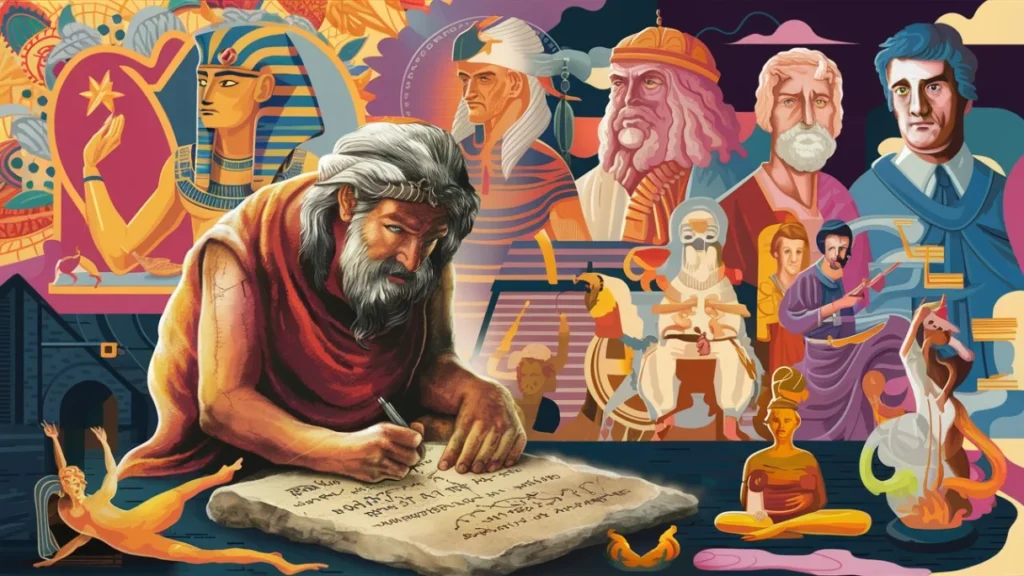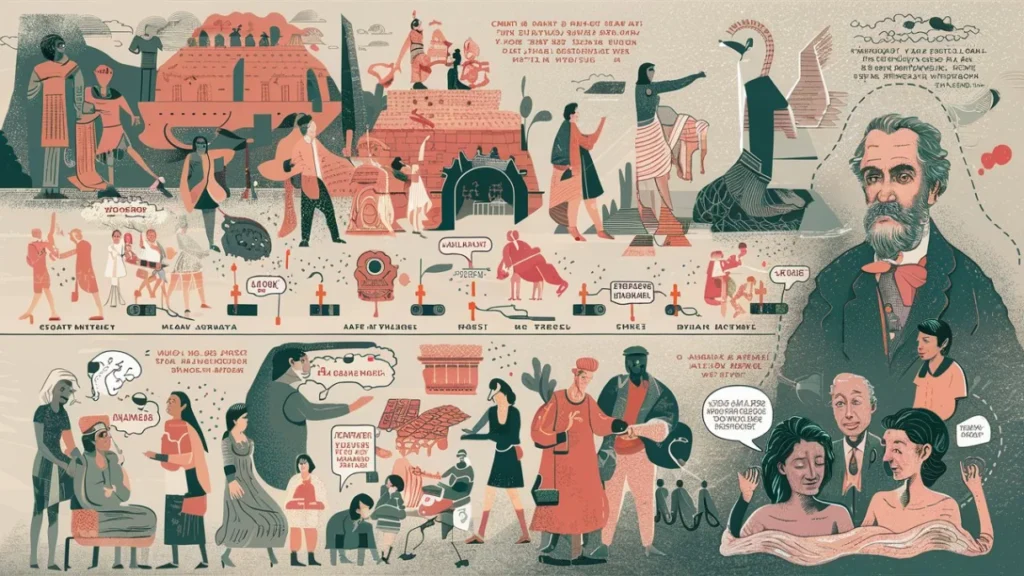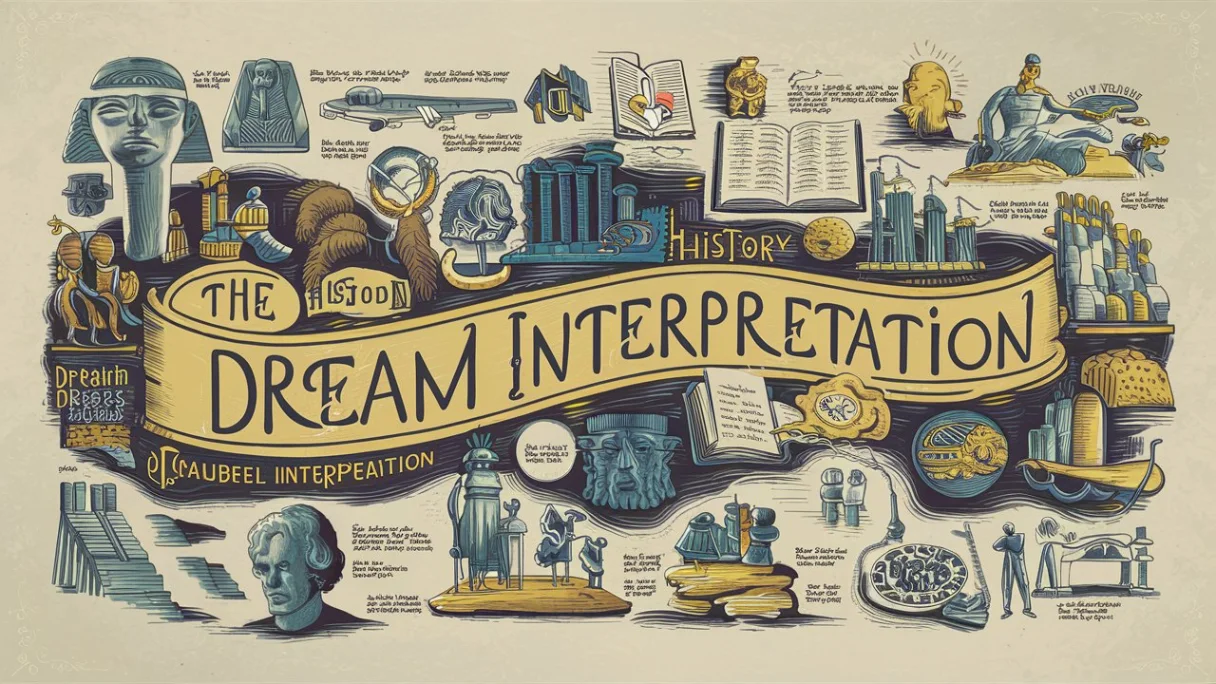Dreams have fascinated humans since the dawn of civilization. The mysterious and often perplexing nature of dreams has led people to seek meaning and significance in their nighttime visions. Throughout history, various cultures and societies have developed their methods and beliefs surrounding dream interpretation. In this comprehensive guide, we’ll explore the captivating history of dream interpretation, from ancient civilizations to modern times.
Ancient Dream Interpretation
Mesopotamia and Ancient Egypt
The ancient Mesopotamians and Egyptians were among the first civilizations to place great importance on dreams and their interpretations. They believed that dreams were messages from the gods, offering guidance, warnings, and prophecies.
In Mesopotamia, the Assyrians and Babylonians kept extensive dream journals and developed dream interpretation manuals. The famous Epic of Gilgamesh, one of the oldest known literary works, features dream interpretation as a significant plot element.
Similarly, ancient Egyptians believed that dreams held divine messages. They even had a god specifically associated with dreams—Bes, who was thought to protect sleepers from nightmares. The Egyptians also used dreams for medical diagnosis and treatment.
Ancient Greece and Rome
The ancient Greeks and Romans also held dreams in high regard. They believed that dreams could provide insight into the future and offer guidance from the gods.
Greek philosophers, such as Aristotle and Plato, explored the nature of dreams and their significance. Aristotle believed that dreams could reveal an individual’s physical and psychological state, while Plato suggested that dreams could access hidden knowledge and truths.
In ancient Rome, dream interpretation became a specialized profession. The Romans consulted dream interpreters, known as coniectores, to decipher the meaning behind their dreams. They also believed in the prophetic power of dreams, with many historical accounts describing how dreams influenced political and military decisions.
Dream Interpretation in World Religions

Many world religions have their perspectives on dreams and their interpretations. Here are a few examples:
Hinduism
In Hinduism, dreams are considered to be a state of consciousness that lies between waking and deep sleep. Hindu scriptures, such as the Upanishads, discuss the significance of dreams and their role in spiritual growth. Some Hindu traditions believe that dreams can provide glimpses into past lives or offer guidance from deities.
Buddhism
Buddhism teaches that dreams are a reflection of the mind’s activities and can be used as a tool for self-awareness and spiritual development. Buddhist practitioners often use dream yoga, a practice that involves remaining consciously aware during dreams, to gain insights and cultivate mindfulness.
Judaism
Jewish tradition places significance on dreams, with many biblical figures, such as Jacob and Joseph, experiencing prophetic dreams. The Talmud, a central text in Judaism, contains extensive discussions on dreams and their interpretations. Jewish mystics, particularly in the Kabbalah tradition, believed that dreams could reveal hidden truths and divine messages.
Christianity
Christianity also acknowledges the importance of dreams, with numerous biblical accounts of God communicating with individuals through dreams. Some Christian thinkers, such as St. Augustine and St. Thomas Aquinas, explored the nature of dreams and their spiritual significance. In some Christian traditions, dreams are believed to offer guidance, comfort, and revelation from God.
Islam
In Islam, dreams are considered to be a form of divine communication. The Prophet Muhammad placed great importance on dreams and encouraged his followers to share and interpret their dreams. Islamic dream interpretation often involves analyzing symbols and their meanings based on Quranic teachings and Hadith (sayings of the Prophet).
Modern Dream Interpretation

In the modern era, dream interpretation has evolved significantly, influenced by advancements in psychology and neuroscience. Here are some notable figures and approaches in modern dream interpretation:
Sigmund Freud
Sigmund Freud, the founder of psychoanalysis, revolutionized the field of dream interpretation in the early 20th century. In his influential book “The Interpretation of Dreams,” Freud proposed that dreams are a manifestation of unconscious desires, fears, and conflicts. He believed that by analyzing the symbolic content of dreams, individuals could gain insight into their unconscious minds and resolve underlying psychological issues.
Carl Jung
Carl Jung, another prominent figure in psychology, had a different approach to dream interpretation. Jung believed that dreams were not just a reflection of personal experiences but also contained universal symbols and archetypes that were shared by all humans. He explored the concept of the collective unconscious and how it influenced dreams. Jung’s approach to dream interpretation involved examining the symbolic and emotional content of dreams to gain self-awareness and personal growth.
Cognitive and Neuroscientific Approaches
In recent decades, cognitive psychology and neuroscience have provided new insights into the nature of dreams. Researchers have studied the brain activity during sleep and dreaming, revealing the complex processes involved in dream formation. Cognitive theories suggest that dreams are a byproduct of the brain’s information processing and memory consolidation during sleep.
| Approach | Key Ideas |
|---|---|
| Psychoanalytic | Dreams as manifestations of unconscious desires and conflicts |
| Jungian | Dreams contain universal symbols and archetypes; reflect collective unconscious |
| Cognitive | Dreams as byproduct of brain’s information processing and memory consolidation |
| Neuroscientific | Study of brain activity during sleep and dreaming; physiological basis of dreams |
While modern scientific approaches have shed light on the mechanics of dreaming, the subjective experience and personal significance of dreams continue to captivate individuals seeking self-discovery and meaning.
The Significance of Dream Interpretation
Dream interpretation remains a valuable tool for personal growth, self-reflection, and psychological well-being. By exploring the content and emotions of dreams, individuals can:
- Gain insights into their unconscious minds and emotional states
- Identify patterns and recurring themes in their lives
- Work through unresolved issues and conflicts
- Enhance self-awareness and personal development
- Find creative inspiration and problem-solving ideas
Whether approached from a spiritual, psychological, or personal growth perspective, dream interpretation offers a pathway to deeper understanding of oneself and the world around us.
Conclusion
The history of dream interpretation is a rich and fascinating tapestry, woven with threads from ancient civilizations, world religions, and modern psychological and scientific approaches. From the divine messages of ancient Mesopotamia to the psychoanalytic theories of Freud, dreams have captivated the human imagination and sparked a quest for understanding.
As we navigate the complexities of modern life, dream interpretation remains a valuable tool for self-reflection, personal growth, and exploring the depths of our unconscious minds. By embracing the wisdom of the past and integrating the insights of the present, we can harness the power of our dreams to lead more fulfilling and meaningful lives.
So the next time you find yourself awakening from a vivid dream, take a moment to reflect on its potential significance. Whether you choose to explore its symbolism, emotions, or personal relevance, remember that you are part of a timeless human tradition—one that seeks to unravel the mysteries of the dreaming mind and unlock the secrets of the soul.

